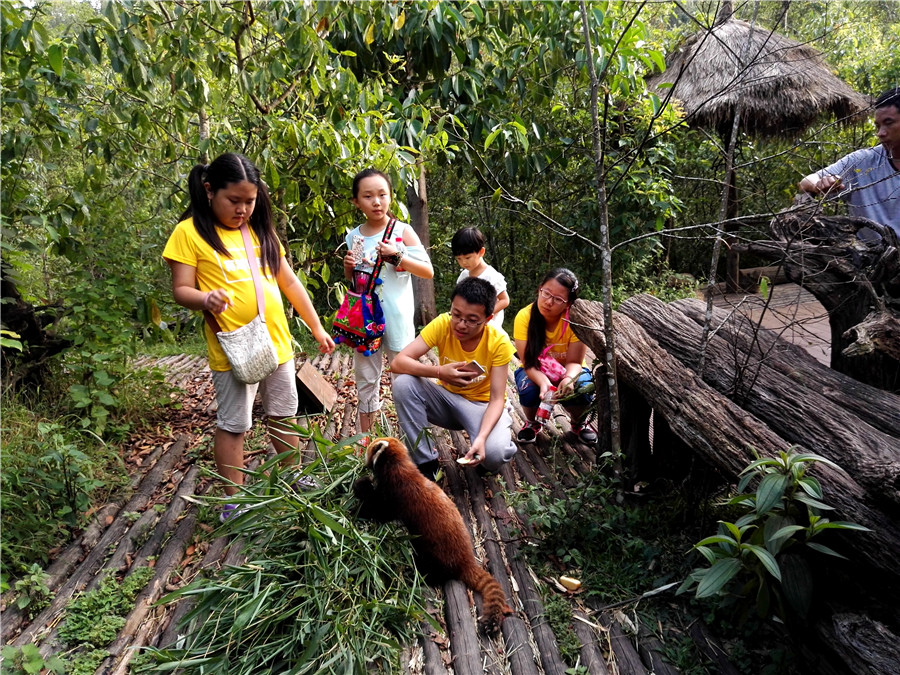'Forest schools' help nature education branch out


Children nationwide are being encouraged to interact with the living world to foster eco-awareness and protection. Li Yingqing reports from Kunming, with Li Hongyang in Beijing.
Since 2016, a growing number of parents nationwide have signed their children up for extracurricular nature classes during the summer and winter vacations, in the hope they will play with animals and plants rather than smartphones and iPads.
The courses are usually provided by private companies, and the students' subsequent behavior and interests suggest that such classes can help them develop respect for nature and promote a sense of environmental awareness and stewardship.
Classes, usually held in forests and parks, often include treks through forests by day and night to observe animals in their natural habitats, and tracking and identifying them via the traces they leave during their daily lives. Students are sometimes encouraged to make artworks from organic materials.
The rising number of nature education institutions suggests that the sector is becoming increasingly popular nationwide.
Last year, about 400 nature educational institutions took part in a themed forum in Chengdu, Sichuan province, hosted by the China Nature Education Network - an alliance of 20 eco-groups and environmentalists - and the tech giant Alibaba. In 2017, about 170 institutions attended the forum.
However, a survey conducted by the network shows that while the sector may be becoming increasingly popular, it is far from prosperous, despite average weekly fees of 700 to 2,100 yuan ($102 to $305) per person.
Last year, of 398 institutions surveyed, only 215 made a profit, while 95 broke even, and the other 88 made a loss.
More than half the teachers surveyed had majored in management, education and biological sciences.
They said their main teaching tasks included showing children how to take part in outdoor activities, explaining natural science, promoting the idea of environmental protection, and teaching students about the relationship between humans and nature.
About 60 percent of those attending were primary school students, their parents and other family members, the survey showed.
























